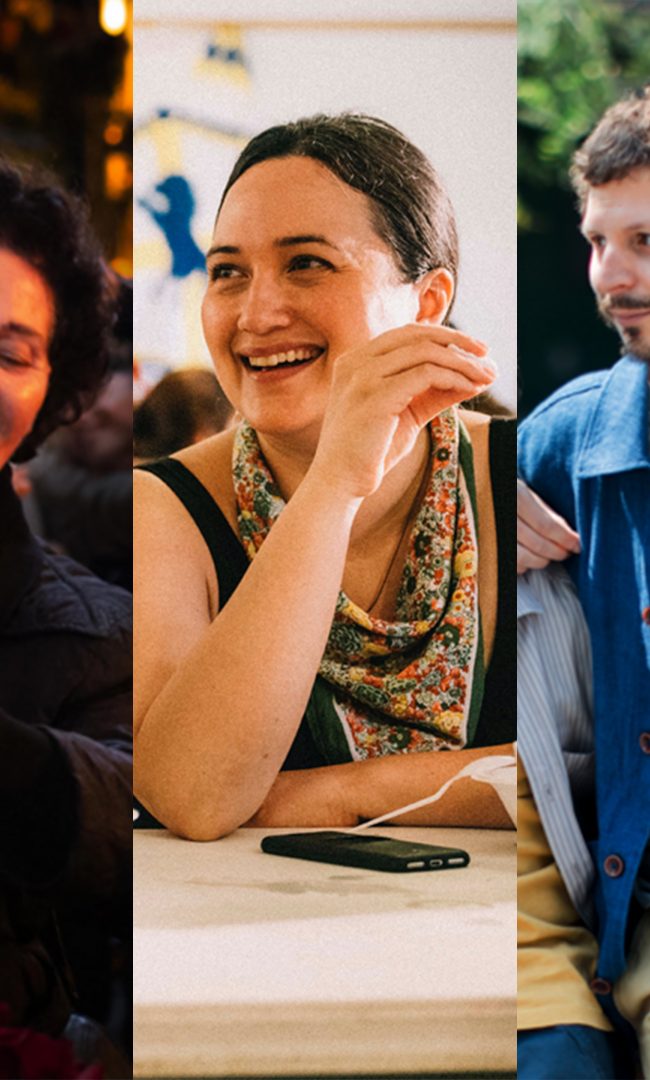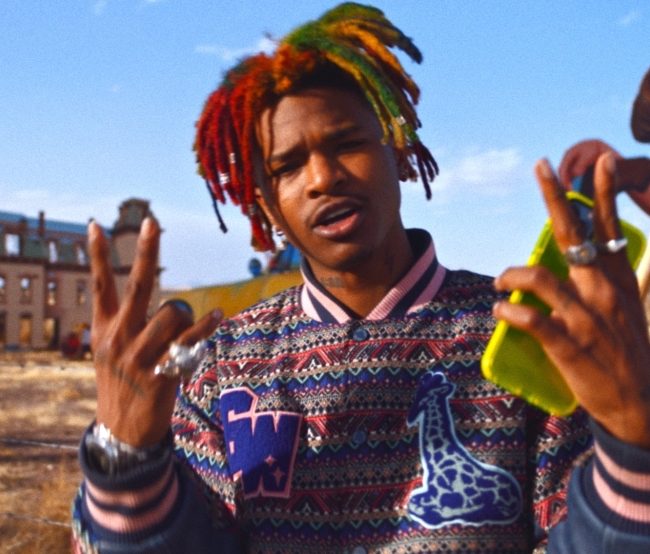A Conversation with Phillip Youmans (BURNING CANE)
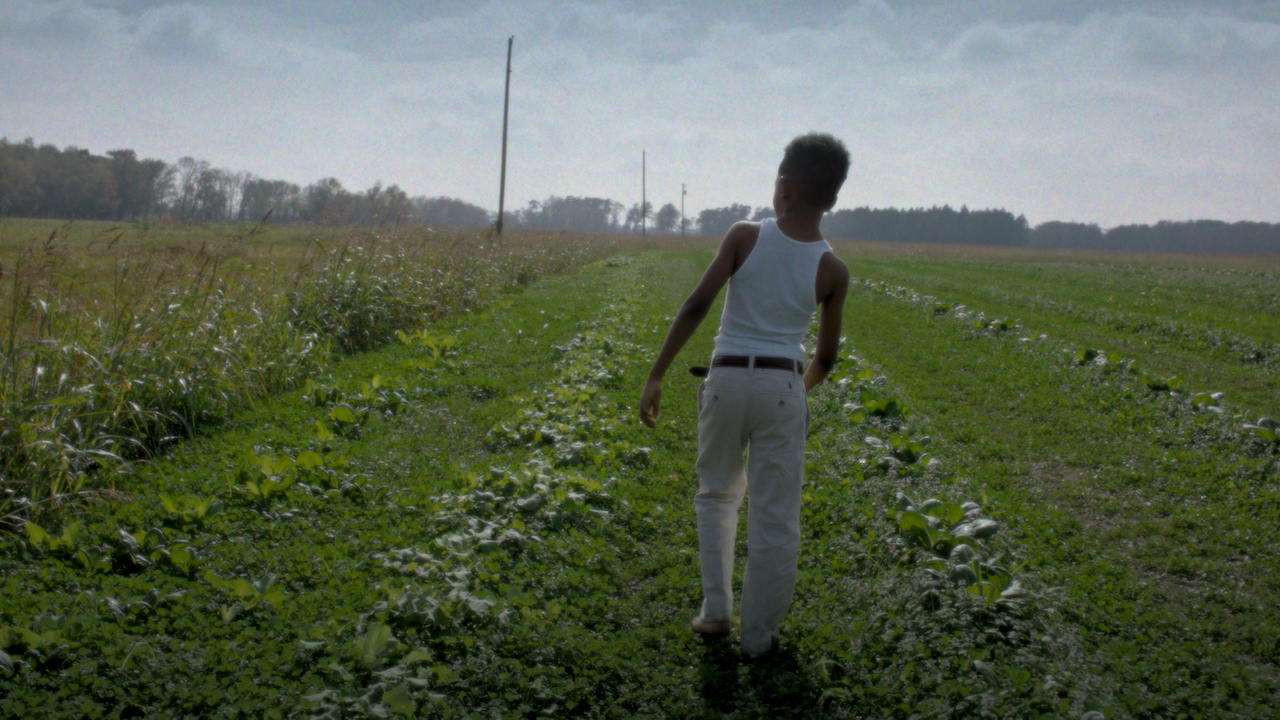
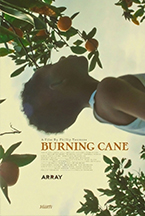 First-time director Phillip Youmans won, with Burning Cane, the Founders Award for Best Narrative Feature at the 2019 Tribeca Film Festival. I reviewed the film back then, finding it a remarkable cinematic achievement for one so young (Youmans was still in high school when he made it). Starring actor Wendell Pierce (Amazon’s Tom Clancy’s Jack Ryan), Burning Cane explores the wages of faith and addiction in the director’s native Louisiana. Now that the movie is finally out in theaters, I had a chance to chat with Youmans by phone, and here is a condensed digest of our conversation, edited for length and clarity.
First-time director Phillip Youmans won, with Burning Cane, the Founders Award for Best Narrative Feature at the 2019 Tribeca Film Festival. I reviewed the film back then, finding it a remarkable cinematic achievement for one so young (Youmans was still in high school when he made it). Starring actor Wendell Pierce (Amazon’s Tom Clancy’s Jack Ryan), Burning Cane explores the wages of faith and addiction in the director’s native Louisiana. Now that the movie is finally out in theaters, I had a chance to chat with Youmans by phone, and here is a condensed digest of our conversation, edited for length and clarity.
Hammer to Nail: I know you’re 19 now, but how old were you when you started the process of making this film?
Phillip Youmans: Well, I wrote the short version of the script when I was 16, and wrote the feature as soon as I turned 17. I was developing the feature, and pretty much all of the pre-production happened, while I was 17. All the production happened during that year, as well. Then, my senior year, when I turned 18 in February, I was pretty much in the thick of post-production at that point. Then post-production pretty much lasted all the way through until college, when I submitted it off to festivals.
HtN: That’s pretty impressive. How did you attract the attention of folks like your executive producer, Benh Zeitlin, and your lead actor, Wendell Pierce?
PY: So, with Ben, after production had finished, I actually just Instagram-messaged him a trailer or, in a way, a short version of the film. It was called “The Reverend,” at that point. It’s a character profile of Wendell’s character. I sent it to Benh, just showing him something, not really with the initial intention of him even coming on as EP [executive producer], but just to show him some work and to meet another local filmmaker that was really doing it at a high level.
I also had loved Benh’s work. I think Glory at Sea and Beasts of the Southern Wild are amazing films. So, I mean, just to have something to show him, just to see, that was something, and then he responded. He really dug it, and so we met, we became good friends, and then after that he sat in on feedback sessions, helped me get a grant, helped me get editing space, and was just immensely helpful.
With Wendell, I was working a morning coffee stand and I was waiting on a woman named Lula Elzy. She asked me what I wanted to do. I told her I was making my first feature film, talked to her about some of the characters in the film, and then she asked what I thought of Wendell Pierce playing the role of the preacher. At first, that kind of took me aback because I never thought that Wendell was even the caliber of actor that I would have access to.
From that point on, she texted him and [I] got his number, got his email and sent him the script. At first, I actually told him, don’t read the script, because it really wasn’t as expanded in his role as it needed to be, and so I took another week, kind of restructured it, expanded his role, expanded that entire portrait of the pastor, integrating with the community. Then I sent him that new draft, and after that point it was all about figuring dates out.
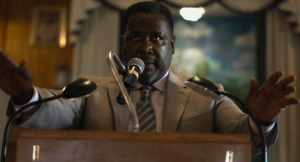
Wendell Pierce in “Burning Cane”
HtN: So, this woman who ended up being your angel, Lula Elzy, how did she happen to have a connection that could get you in touch with Wendell Pierce?
PY: We all went to the New Orleans Center for Creative Arts, NOCCA, obviously in different years. I think there’s just a big sort of communal nature to the city of New Orleans and to NOCCA graduates and just NOCCA alumni in general. Right after this interview, in fact, I’m about to go to a NOCCA reception for Burning Cane, because I’m in New Orleans right now and they’re about to hold a special ceremonial screening for it. But NOCCA is a family, and there are multiple levels to Lula’s investment, that she saw a NOCCA kid trying to make a film, she had a connection with Wendell in that way, so I think she just wanted to sort of bridge that connection.
HtN: So, let’s step back, then. What was the original genesis of the script? What did you draw upon for this story?
PY: I drew upon my experiences growing up in the Baptist church. It’s the stories from my mother growing up in the Lowcountry of South Carolina, in the Baptist church. I learned from the stories of my grandmother, the stories of my aunts and uncles. There’s just an amalgamation of my experiences and the stories of my family within that southern black Protestant ethos.
HtN: In the press notes, I read that you were inspired by the “spirit of the blues.”
PY: (laughs) I was listening to so much Robert Johnson during that time, so much Lightnin’ Hopkins. I listened to gospel music that I’d never even…like Sam Cooke and The Soul Stirrers, or the Mississippi Blue Spring Baptist Delegation, you know what I mean? There was just so much about the music that I was listening to that also directly inspired the film.
HtN: So, we’ve talked about your executive producer and your lead actor. What about the rest of the cast? How did you find them, because they’re all really extraordinary, as well.
PY: So Kaia [Karen Kaia Livers], the lead of the film, was actually supposed to be our casting director. Isaac Webb, my department chair at NOCCA, reached out to Kaia and asked her to do casting for the film. But then after Kaia read the role, she said that she was going to play the role.
HtN: And she’s the matriarch.
PY: And she’s the mother, yes. She plays Helen. So, I found Kaia that way, and after I read with Kaia, it became clear that that was just how it was going to go. She had an amazing read and it … she was just Helen. It was almost kind of uncanny how seamlessly it fit, so that was the first sort of surefire bet.
Then Dominique McClellan… he plays Daniel … I found through my old theater coach, Tommye Myrick, back when I used to act in the city when I was younger. Tommye said he was just really the only actor to really consider in the city in that way. So then I read with them, and sure thing, he was kind of a … it was a surefire bet.
Braelyn Kelly was actually a family friend through my mother, one of her coworkers, who was interested in acting. We had read with some other kids, considered some other kids before, but Braelyn was also sort of new to the whole experience, and I had this idea that it would probably be better to not use a trained child actor, someone who sort of felt like a fish out of water in a way. I feel like that did kind of work and serviced Jeremiah and his integration into the story.
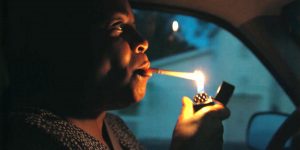
A still from “Burning Cane”
HtN: How about your crew?
PY: So, cinematographer Jakob Johnson was a friend of mine, a guy I met on a UCLA thesis film a while back, and he was initially going to be my DP [director of photography], but we had so few resources that we just couldn’t pay him, and he was expecting a wife and a kid very soon. So instead of him being my DP, he went to go find work, and instead of that, he gave me his camera gear, and so I shot the film, myself.
HtN: Well, excellent work. What did you use to shoot on?
PY: I shot on a combination of two cameras, a Blackmagic 4K Production Camera, mostly shooting on RAW, and a Blackmagic URSA Mini 4.6K.
HtN: And what did you cut on?
PY: I cut on Adobe Premiere, and then we did final color in DaVinci Resolve.
HtN: So, how about the rest of the crew?
PY: So, really, I was fortunate. I was working on that film with some of my best friends. My producers, Mose Mayer, Ojo Akinlana, even Karen Kaia Livers, Isaac Webb, all of them, they were my mentors, but also turned out to be friends as well. They were on the ground, day in, day out, producers, you know what I mean? Really hands-on on-set producers.
It’s essential, I think, to have friends at that age who can really put their full force and full commitment towards the project when they don’t have the same sort of financial commitment, and they’re there because they believe in you and they believe in the project, not because of any financial incentive. They’re not worrying about or thinking about how long your shooting day is, when shooting days can bleed into 13-14 hours, sometimes. No one’s really complaining, just because they want to be there. There wasn’t any guarantee of anything happening after the fact.
HtN: What kind of unexpected lessons did you learn, making this film, and then what do you feel like you learned the most?
PY: I think I learned there’s so much truth to that phrase that a film is rewritten three times: once in pre-production, once in production, and a third time in post. The film really found its shape and its fluidity and its pacing in post-production. I think so much about that sort of discovery was important because it showed how much time I really needed to take to meditate with the piece.
Because when I finished my first cut, I really thought I was finished, man. I thought that first two-and-a-half-hour cut, almost three-hour cut that I had, was it. Then I went to the feedback sessions, got in a lot of honest, sort of brutal feedback from filmmakers that I knew and respected, and it changed the whole scope of that conversation. So that was something I definitely learned.
I also definitely learned that sometimes you can be too attached. I wrote, directed, shot and edited, and at a certain point I needed to bring in an outside editor, a very talented Ruby Kline, to the conversation, because I needed somebody to look at it objectively, because it was very clear that there were certain portions of the film that I was just too attached to. So that’s something that I learned.
HtN: Now that you’ve had this amazing learning experience that most people don’t get in high school, and you’re in college now, what is next on your plate, beyond your studies?
PY: My next feature. My next film is about the New Orleans chapter of the Black Panthers in 1970, and where they started, and how they started, and there’s just so much to that story, really. It’s a very grounded, sort of communal story about the inner workings of the New Orleans chapter. I got to know those Panthers early on in high school, so that’s next for me.
HtN: I really look forward to seeing it. That’s awesome. By the way, where are you in college now?
PY: I’m technically enrolled at NYU, but I don’t know. I’ve been traveling around with the film for festivals, so I just…I just don’t even know.
HtN: Right, technically you’re in school, but you’re not really, because you’re traveling too much.
PY: Yeah, and if I were in school, I would have flunked out by now because they don’t … Look, they try to be as helpful, or I guess as accommodating, as they can be, but there’s only so much accommodating the law will allow as far as education is concerned.
HtN: (laughs) Well, as a university department chair, I sympathize with both sides. Phillip, thanks so much for talking to me. Congratulations on the film. I wish you all good things with it and with your next project.
PY: Chris, it was so nice to speak with you. Thank you so much.
– Christopher Llewellyn Reed (@ChrisReedFilm)
Like what you see here on Hammer to Nail? Why not pay just $1.00 per month via Patreon to help keep us going?








